What Is The Age A Baby Talks?
Most parents for the first time are curious when the baby will say “mama” or “dada’; the first words of a baby are special and unforgettable memories for parents.
A few pointers regarding when a baby talks:
• The receptive language of a baby develops much before the expressive language; the baby first absorbs what is spoken to him/her that soon becomes the baby’s vocabulary.
• Observing a baby up to the age of 3 months it is significant to note that the baby communicates first with crying; this indicates that the baby wants to communicate something. It is observed that different cries of babies are used to communicate different things.
• Between the age of 4 to 6 months most babies start babbling making the sounds using vowels, followed by vowels and consonants; he/she makes sounds like 'Ooh' and 'Aah', followed by words like 'Da-Da' and 'Ba-Ba.' The baby responds by either cooing or smiling.
• The baby becomes more receptive and follows simple instructions between the ages of 7 to 12 months; most babies blow kisses and wave goodbye at this stage. This is the exciting phase when many babies try to imitate the parent’s gestures and sounds.
• Parents could help their baby to start talking by imitating the baby sounds of your baby and smiling and laughing back at him/her; this encourages the baby to imitate you.

• Most babies utter the first words between the ages of 11 to 14 months, with babies saying approximately 20 words by the time they are 18 months. It is however found that most boys speak later than girls; also not all babies in the same family start talking at the same age.
• At 4 years most children start chatting away and narrating stories; it is a real pleasure for parents to hear stories from children.
• A baby develops vocabulary faster when the parent talks to the baby as he/she does tasks for them; when putting on his/her shoes say, "Mummy is putting your shoes" and while putting him/her in the pram say, "Mummy is putting you on your pram."
• Parents can help their babies to learn new words by reading out from first word books. He/she may first point out words before being able to ultimately say them.
• A baby’s development of learning and speech skills is affected by their state of health, nutrition, emotional factors and social factors; There is a need for consultation with the doctor if your baby does not start babbling at the age of 1 year, if your baby does not respond or turn his head to loud sounds or his/her name being called and when your baby does not say anything at the age of 16 months.
To conclude it has been observed that certain gifted children also speak late.
Image Courtesy: Google
Take the next step toward your goals
Share your requirement and find the best care providers in your area
-
Looking for a caretaker’s job? Build your profile and get in touch with families in your vicinity.
-
Discover nannies, babysitters, cooks, housekeepers, pet sitters, and elder care under one roof.
-
Get all the support you need to run a successful care center.
-
Search for appropriate centers near you depending on your needs.
Care Corner Insights: Blog Library
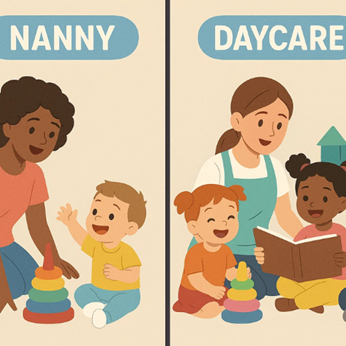
Nanny vs. Daycare in Naperville, IL: What Works Best for Indian Working Couples?
Hey Naperville Parents! Balancing work and family life is no small feat—especially for Indian working couples trying to juggle careers, household responsibilities, and parenting. One of the biggest decisions you’ll face? Choosing between a nanny or
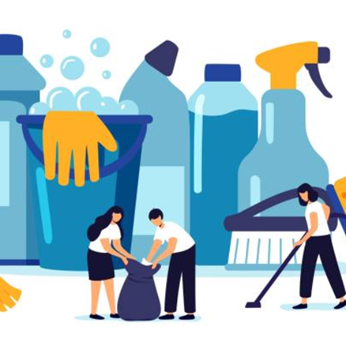
Housekeepers in Sugar Land, TX: Deep-Cleaning Checklists for Indian Homes
Housekeepers in Sugar Land, TX: Deep-Cleaning Checklists for Indian Homes Indian cooking = flavor + spices + love… but also oil splatters and stubborn stains. Time to reset! Degrease stovetops, chimneys, and exhaust fans. Scrub countertops, tiles,

12 Easy After-School Snack Ideas for Kids Who Get Hungry Quickly
School’s out, and the hunger hits hard! If your little ones come home ravenous and ready to raid the kitchen, you’re not alone. After-school snack time is prime time for refueling, recharging, and maybe even sneaking in a little nutrition. So here ar

Vegetarian Home Cook Services in Sunnyvale, CA: North & South Indian Meal Prep for Busy NRIs
Between work, family, and daily responsibilities, finding time to cook fresh meals can be difficult. That’s when a vegetarian home cook service in Sunnyvale makes life easier—bringing authentic North and South Indian dishes straight to your table. T
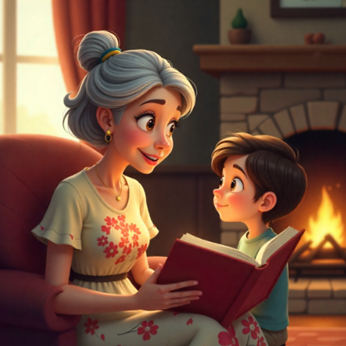
Hiring a Live-In Nanny in Plano, TX: A Practical Guide for NRI Households
For NRI families living in Plano, TX, raising children while managing work and household responsibilities can feel overwhelming. Many parents find that hiring a live-in nanny provides the right balance of support, convenience, and cultural comfort. U
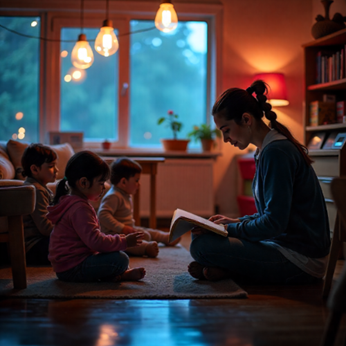
Daycares in Fremont, CA for Indian Toddlers: Curriculum, Food Policies & Waitlists
You’ve probably met them — the parents at the park chatting about Montessori vs. play-based learning while handing their toddler a homemade paratha. The ones who ask every daycare in Fremont if they serve vegetarian meals. And yes, the ones who have
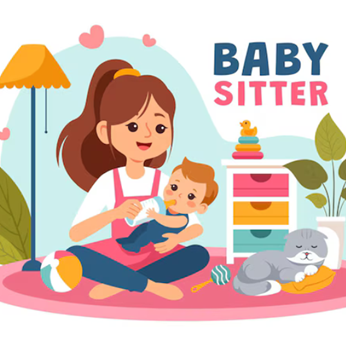
Babysitters in Jersey City, NJ for NRI Parents: Last-Minute, Weekend & Evening Options
You’ve probably seen them — the parents juggling grocery bags in one hand and a phone call to grandma in India in the other, while trying to keep their toddler from running into the road. The ones who cancel dinner plans because the babysitter bailed
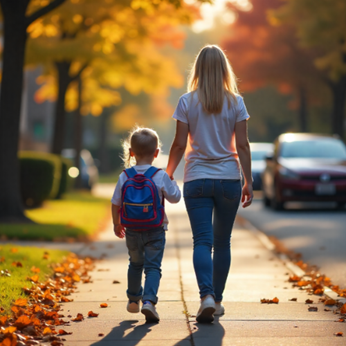
Best Nanny Services in Edison, NJ for Indian Families: Costs, Language, and Cultural Fit
Edison, NJ, is home to one of the largest Indian communities in the U.S., and finding a nanny here often means looking for more than just childcare skills. For Indian families, cultural understanding, language fluency, and traditional values play a b
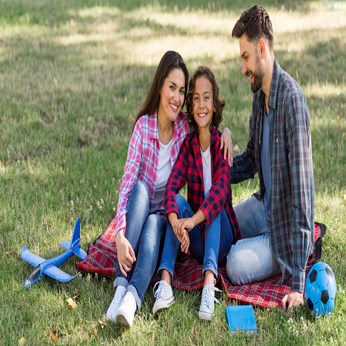
What Is Helicopter Parenting? How It Affects Children and Ways to Avoid It
You’ve probably seen them. The parents at the playground who shadow every move, wiping invisible germs off the slide before their child touches it. The ones who fill out job applications for their teens. And yes, the ones who email college professors
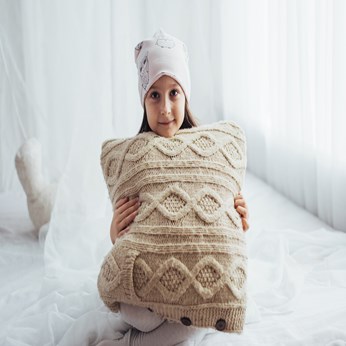
Are Weighted Blankets Safe for Children? Pros and Cons Explained
Weighted blankets have become a cozy trend in recent years. From helping adults sleep better to calming anxiety, they’ve earned a spot in many households. But when it comes to kids, especially the little ones, parents often ask: Are weighted blankets